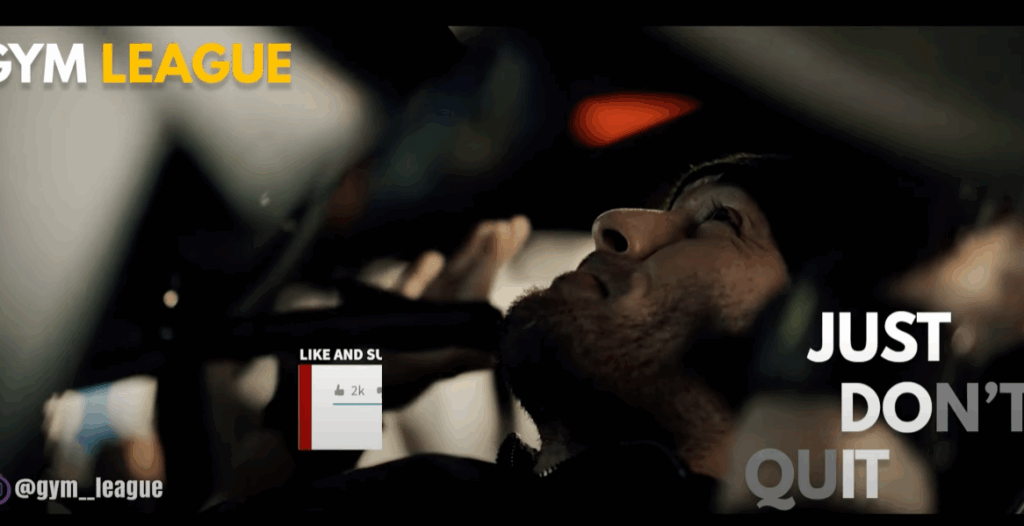Every so often, I ask myself a simple but dangerous question: What am I training for?
There’s no marathon on my calendar, no bodybuilding competition coming up, no looming deadline. So why keep this strict, disciplined lifestyle? Why push myself every day?
The truth is, there are mornings when I think, Maybe I’m done. I imagine a life with no alarm clock, no carefully planned meals, no grueling workouts. Just a comfortable routine. It’s tempting. But then another voice in my head asks: Do you really want to go back to being average?
That’s the turning point. Because once you’ve experienced the strength, focus, and freedom that come from discipline, “average” no longer feels like enough.

Chasing Excellence Without a Target Date
Most people set big goals as a reason to train—an event, a race, a photo shoot. And while those can be powerful motivators, they can also create a dangerous cycle. Once the goal is achieved, many slip back into old habits.
Training without a set finish line means you’re not just preparing for one event—you’re preparing for life. It’s about keeping yourself sharp physically, mentally, and emotionally, no matter what’s ahead.
I’m not training to look good for one day. I’m training to be strong for every day.
Facing the Storm Instead of Hiding From It
Life doesn’t wait for you to “feel ready.” Challenges show up whether you’re prepared or not. I train to face those challenges head-on.
To me, training is like chasing a storm. You run toward the difficult things—hard workouts, strict nutrition, mental discomfort—because they make you stronger. Avoiding them doesn’t make life easier; it just makes you weaker when they arrive.
When you consistently confront discomfort, you strip away the fear of the unknown. You stop worrying about what might happen, because you know you’re capable of handling it.
The Trap of “Normal”
It’s easy to settle into the comfort of being “normal.” Most people walk through life never realizing how much potential they have inside them. They accept average as good enough, not because they lack talent, but because they never push themselves far enough to see what’s possible.
We all have natural abilities—gifts that, with enough work, can become extraordinary skills. But talent doesn’t grow without effort. It needs to be trained, refined, and tested. And that’s what daily discipline does—it hones your edge.
The thought of letting that edge dull is what keeps me from quitting.

The Silence That Brings Clarity
One of the most important parts of staying on track is learning to shut out the noise. We live in a world where distractions are constant—phones buzzing, social media updates, and endless conversations that drain more energy than they give.
If you really want to hear your own thoughts, you need to create space for silence. That means stepping away from technology, being comfortable in your own company, and letting your mind slow down enough to think deeply.
This “going dark” is where I reconnect with why I’m doing what I do. In the quiet, you can’t hide from yourself. You face your truth, and that truth keeps you accountable.
Discipline Over Motivation
If you rely on motivation alone, you’ll fail the moment it disappears. And it will disappear—sometimes for days, sometimes for weeks. Discipline is the safety net that keeps you moving when motivation is gone.
Motivation is an emotion; discipline is a decision. I don’t train because I’m always inspired. I train because I’ve made a commitment to myself that I refuse to break.
The Benefits Beyond the Gym
Daily training isn’t just about strength or aesthetics. It reshapes how you approach life.
- Resilience: You learn to push through discomfort without panicking.
- Focus: You sharpen your ability to concentrate on what matters and ignore what doesn’t.
- Self-trust: You prove to yourself that you can follow through, even when it’s hard.
These traits carry over into work, relationships, and every challenge you face outside the gym.

Practical Steps to Stay Committed Without a Deadline
If you want to maintain a high level of performance without relying on an upcoming event or competition, here are some strategies that work:
- Create a Personal Mission Statement
Write down why you train—beyond any single goal. This becomes your anchor. - Set Process Goals Instead of Outcome Goals
Focus on daily habits: number of workouts per week, nutrition targets, sleep quality. - Embrace the Off-Season Mindset
Even if you’re not competing, treat your training with the same structure and seriousness. - Schedule “Technology-Free” Time
Give yourself quiet time daily to think, reflect, and reset without outside noise. - Challenge Yourself Regularly
Add new exercises, increase intensity, or take on physical challenges to keep growing.
Why Quitting Isn’t an Option
I know the temptation to stop. I’ve felt it many times. But quitting would mean turning my back on everything I’ve built—physically, mentally, and emotionally. It would mean choosing ease over strength, comfort over growth.
The truth is, I’m not training for a medal, a trophy, or applause. I’m training for the storms I can’t see yet. I’m training for the days when life throws something at me that would break the version of me who didn’t prepare.
Final Thoughts: Purpose Over Perfection
You don’t need a race on the calendar to justify working hard. You don’t need a finish line to live with discipline. The real reward is knowing that you’re ready for anything life throws your way.
When you train without a deadline, you train for life itself. And in a world where most people drift through their days without tapping into their full potential, choosing to live with purpose is the ultimate act of strength.



